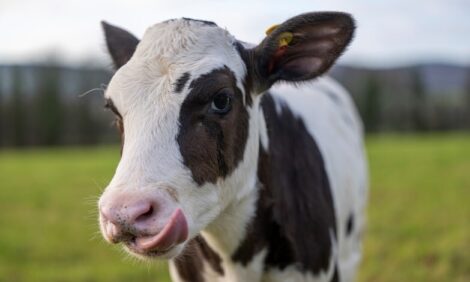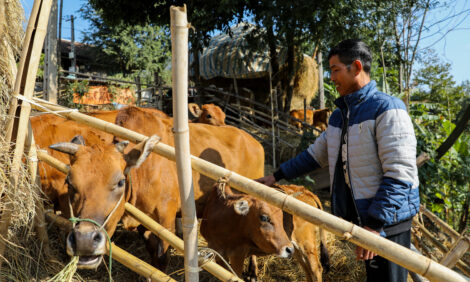



Six Steps to Preventing LA-MRSA Spread Between Livestock and Farmer
Livestock associated Meticillin resistant Staphylococcus aureus (LA-MRSA) is a bacteria that has developed resistance to certain antibiotics. As LA-MRSA can passed between humans and animals, the UK government has created six key steps you can take on your farm to help prevent the bacteria from spreading.LA-MRSA has been identified in livestock in various countries throughout the world and has recently been reported in a small number of animals in the UK.
It can pass between animals and humans in either direction, most often without causing any problems, but occasionally it can cause infections. Infections from this are very rare in people in the UK.
It usually lives in the nose or on the skin without causing any signs or symptoms. In this instance people and animals are said to be colonised.
If the bacteria is able to get into the body e.g. via a wound, it can cause a local skin infection, usually resulting in boils or wound infections, but occasionally it can cause disease such as pneumonia or a blood stream infection.
It can spread from animals to people by direct contact or via dust in the environment of colonised animals. It can survive in dust for a long period of time.
As it is not possible to tell if an animal is colonised, without carrying out specific laboratory tests, it is recommended that as a precaution, all people who work with livestock follow the six steps below.
Six Steps to Reducing Chance of LA-MRSA Infection
- Wash your hands regularly with soap, remove all visible dirt and then dry your hands with a paper towel. This is especially important before eating, smoking and leaving the farm. Alcohol hand gels may be used, but are less effective if applied when hands are wet or visibly dirty.
- Cover any cuts, grazes or areas of broken skin with a waterproof dressing to reduce the chance of bacteria entering the body.
- Wear protective outer clothing when working with animals. Remove the protective clothing on the farm and if possible have a shower before leaving. Ideally changing rooms will be on the edge of the farm so you do not have to walk through the farm in your clean clothes.
- Wash all work clothes on farm. If this is not possible, put the clothes in a sealed bag to take them home for washing. Avoid shaking out the clothes as you put them in the machine as this will spread dust in the environment. Wash work clothes separately from other laundry and wash your hands after handling them.
- Footwear should be dedicated to working with livestock and not used elsewhere. Regularly clean and disinfect your footwear and change into other footwear when leaving the premises.
- Inform your doctor or dentist that you work with livestock if you go to them for any treatment as they may wish to test for LA-MRSA before carrying out any surgery or dental extractions. It may also help them to accurately diagnose conditions such as skin infections. Members of your household should also let the doctor know that they have an indirect connection to livestock.
Good on-farm biosecurity practices will also help to reduce the spread of LA-MRSA, as well as other bacteria and viruses that can spread between livestock and people.
Consult your veterinary surgeon for advice on biosecurity.


